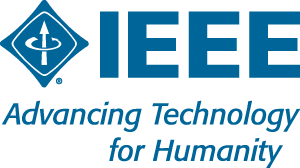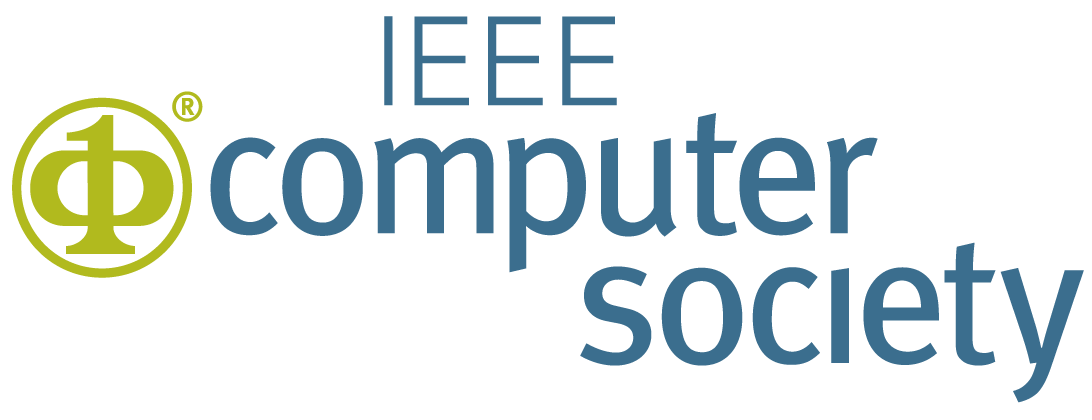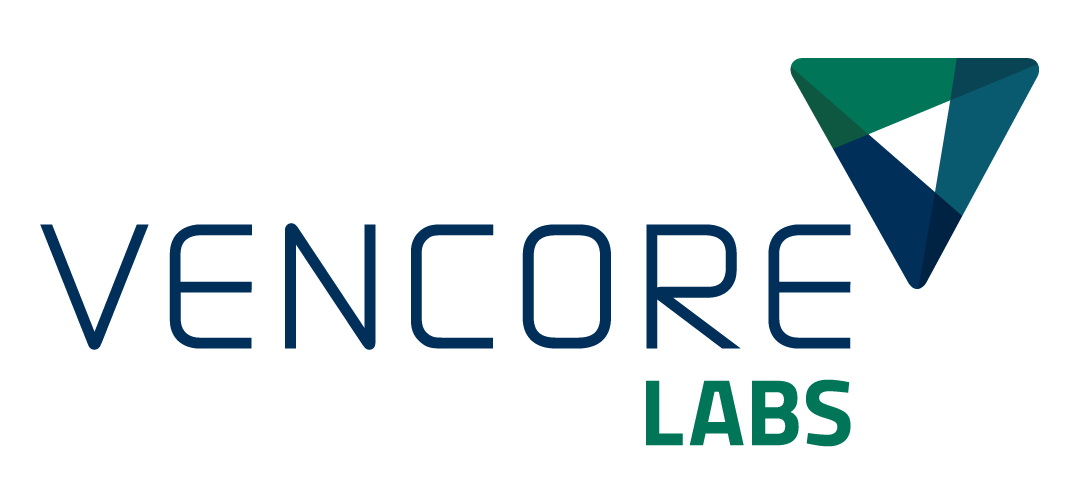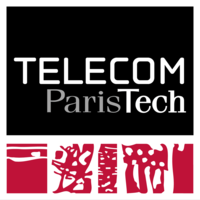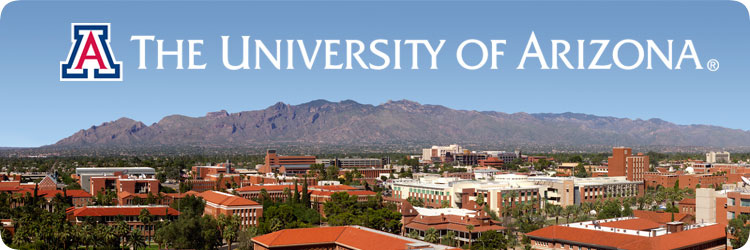Accepted Workshops
- Fifth International Workshop on Self-Adaptive and Self-Organising Socio-Technical Systems (SASOST 2017)
Fourth IEEE Workshop on Quality Assurance for Self-adaptive, Self-organising Systems (QA4SASO 2017)(canceled)- 2nd eCAS Workshop on Engineering Collective Adaptive Systems (ECAS 2017)
- 3rd International Workshop on Data-driven Self-regulating Systems (DSS 2017)
International Workshop on Industrial Self-Coordination (InSeCo 2017)(canceled)- Fourth International Workshop on Self-Improving System Integration (SISSY 2017)
Fifth International Workshop on Self-Adaptive and Self-Organising Socio-Technical Systems (SASOST 2017)
The design and operation of computer systems has traditionally been driven by technical aspects and considerations. However, the usage characteristics of information and communication systems are both implicitly and explicitly determined by social interaction and the social graph of users. This aspect is becoming more and more evident with the increasing popularity of social network applications on the internet. This workshop will address all social aspects that influence the design of technical systems, covering different perspectives of this exciting research area from the computational modelling of social systems to socio-inspired design strategies for distributed algorithms, collaboration platforms and communication protocols.
Topics
SASOST systems require a highly interdisciplinary approach, and the establishment of a research community around the creation of such systems is one of the workshop's key objectives. For this purpose, the workshop brings together experts from areas such as distributed computer systems, complex systems, and the social sciences to present findings and elaborate on the topic in the following complementary topical sections as well as open panel discussion rounds. Relevant topics include but are not limited to:
- Computational modelling of social systems
- Trust, norms and reputation management
- Computational social science techniques
- Social network analysis in information systems and collaboration platforms
- Information spreading, opinion formation and collective user behaviour
- Real-time prediction of collective phenomena like, e.g., information cascades in social media
- Representation of and reasoning about computational laws
- Effects of trust models and metrics on self-organising autonomous systems
- Analysis of threats to self-organising and autonomous systems
- Data-driven modelling of human and social aspects in software engineering
- Applications of social aspects in technical systems
- Socio-aware overlays and adaptation of network protocols and topologies
- Simulation and evaluation of computing systems using behavioural models
- Trust-based approaches to deal with uncertainty in self-organising systems
- Self-organising norm-governed systems
- Socially adaptive, scalable content distribution
- Real-time monitoring and prediction of collective user dynamics
- Smart grids and cyber-physical systems
- Utilisation of social structures for the scalable provision of distributed virtual environments and in application-level routing schemes for peer-to-peer, wireless ad-hoc or delay tolerant networks
- Socially inspired algorithms and network topologies for distributed search, consensus, gossiping etc.
Submission and Publication
The organisers welcome the submission of short papers not exceeding 6 two-column pages in the IEEE Computer Society Press proceedings style. We solicit both original research papers as well as position papers. The submissions need to be previously unpublished and currently not under review elsewhere. Accepted papers will be published as a bundle with the main conference proceedings by IEEE Computer Society Press and will be submitted to the indexing companies.
Furthermore, we encourage the submission of proposals for talks that present previously published work of special interest to the workshop community. Position statements encouraging discussions on the workshop's topics are also welcome. These proposals should also adhere to the two-column IEEE Computer Society Press proceedings style, not exceeding two pages. The workshop provides an excellent opportunity to discuss and share research results with a wider audience in an interdisciplinary environment.
Each submission will be peer-reviewed by two to three members of the programme committee in a single-blind process. The decision will be based on the motivation of the research, the clarity of the contribution and the relevance of the research to the domain of self-adaptive and self-organising socio-technical systems. In particular, submissions that promise to fuel discussions, which bring together results and issues from different disciplines and which thus contribute to the strengthening of an interdisciplinary community, will be given preference.
Important Dates
| Submission Deadline | July 7, 2017 |
| Acceptance Notification | July 21, 2017 |
| Camera-ready version due | July 26, 2017 |
Organisation
Jean Botev, University of Luxembourg, Luxembourg
Markus Esch, University of Applied Sciences Saarbrücken (htw saar), Germany
Ingo Scholtes, ETH Zürich, Switzerland
Workshop Website
http://sasost.socioaware.net/2nd eCAS Workshop on Engineering Collective Adaptive Systems (ECAS 2017)
Modern software systems are becoming more and more collective, composed of many distributed and heterogeneous entities. These systems operate under continuous perturbations making manual adjustments infeasible. For a collective system to be resilient, adaptation must be collective, that is multiple entities must adapt in a way that addresses critical runtime conditions while preserving the benefits of the collaborative interdependencies. Decision-making in such systems is distributed and possibly highly dispersed, and interaction between the entities may lead to the emergence of unexpected phenomena. In such systems, a new approach for adaptation is needed to allow (i) multiple entities to collectively adapt with (ii) negotiations to decide which collective changes are best. Collective adaptation also raises a second important challenge: which parts of the system (things, services, people) should be engaged in an adaptation? This is not trivial, since multiple solutions to the same problem may be generated at different levels. The challenge here is to understand these levels and create mechanisms to decide the right scope for an adaptation for a given problem. This workshop solicits papers that address new methodologies, theories and principles that can be used in order to develop a better understanding of the fundamental factors underpinning the operation of such systems, so that we can better design, build, and analyze them, as well as case studies and applications showing such approaches in action Interdisciplinary work is particularly welcomed.
Suggested Topics (but not limited to):- Novel theories relating to operating principles of CAS
- Novel design principles for building CAS systems
- Insights into the short and long term adaptation of CAS systems
- Insights into emergent properties of CAS
- Insights into general properties of large scale, distributed CAS
- Decision-making approaches in CAS
- Methodologies for studying, analyzing, and building CAS
- Frameworks for analyzing or developing CAS case studies
- Languages, platforms, APIs and other tools for CAS
- Scenarios, case studies, and experience reports of CAS in different contexts (e.g., Smart
- Mobility, Smart Energy/Smart Grid, Smart Buildings, traffic management, emergency
Workshop Chairs
- Antonio Bucchiarone, Fondazione Bruno Kessler, Trento, Italy
- Kyle Usbeck, Raytheon BBN Technologies, USA
Submission
The length of a workshop paper may not exceed 6 pages including references and follow the IEEE Computer Society Press proceedings style guide. All papers should be submitted in PDF format using this Easychair login page.
By submitting a paper, the authors confirm that in case of acceptance, at least one author will attend the workshop to present the work.
Papers will be peer reviewed on the basis of originality, readability, relevance to themes, soundness, and overall quality. Workshop proceedings will be published on IEEE Xplore in parallel with the main conference proceedings.
Important Dates
| Submission deadline (strict) | July 3, 2017 |
| Acceptance Notification | July 21, 2017 |
| Camera-ready copy due | July 26, 2017 |
Workshop Website
http://apice.unibo.it/xwiki/bin/view/ECAS2017//3rd International Workshop on Data-driven Self-regulating Systems (DSS 2017)
The emergence of pervasive and ubiquitous technologies together with social media has resulted in unprecedented opportunities to reason about the complexity of our society based on magnitudes of data. Embedded ICT technologies mandate the functionality and operations of several techno-socio-economic systems such as traffic systems, transportation systems, Smart Grids, power/gas/water networks, etc. It is estimated that over 50 billion connected smart devices will be online by the year 2020. Moreover, social media provide invaluable insights about the complexity of social interactions and how these interactions influence the sustainability of several ICT-enabled techno-socio-economic systems. These observations show that regulating online the complex systems of our nowadays digital society is a grand challenge. Regulation concerns trade-offs such as the alignment of technical requirements, e.g. robustness, fault-tolerance, safety and security, with social or environmental requirements, for instance, fairness in the utilization of energy resources. The scale of nowadays data cannot tackle the challenge by itself as data may convey ungrounded correlations and biased predictions. Smart, autonomic and self- regulating mechanisms are required for filtering data streams in real-time and transform them to valuable information based on which intelligent adaptive decisions can be made in a decentralized fashion under a plethora of operational scenarios.
The aim of the 3rd International Workshop on Data-driven Self-regulating Systems is to foster interactions between researchers of different disciplines working on challenges about the self- organization and self-adaptation of complex techno-socio-economic systems. It also aims to promote communication and exchange of ideas between academia and industry. The workshop will run for a full day and will include (i) keynote speakers, (ii) presentation of papers and (iii) a panel discussion. Panelist may include distinguished researchers who participate in the international research hubs of several international projects such as Nervousnet, SoBigData, ASSET, etc.
Topics- self-regulation
- social computing
- autonomic computing
- Internet of Things
- pervasive/ubiquitous computing
- big data analytics
- cloud computing
- online policy-making
- distributed systems
- multi-agent systems
- peer-to-peer systems
- self-organization
- adaptive mechanisms
- complex systems & (social) networks
- mechanism design & game theory
Workshop Chairs
- Evangelos Pournaras - ETH Zurich, Switzerland
- Akshay Uttama Nambi S.N. - Microsoft Research Lab India
- Stefan Bosse - University of Bremen, Germany
Submission Instructions
You are invited to submit original and unpublished research works on above and other topics related to self-regulating systems. Submitted papers must not have been published or simultaneously submitted elsewhere. Please, indicate clearly the corresponding authors and include up to 6 keywords and an abstract of no more than 400 words. Submissions have to be formatted according to the IEEE Computer Society Press proceedings style guide and not exceeding 6 two-column pages. Papers are submitted as PDF files via the Easychair: https://easychair.org/conferences/?conf=dss2017. Each paper will receive a minimum of three reviews. Papers will be selected based on their originality, relevance, contributions, technical clarity and presentation. Authors of accepted papers must guarantee that their papers will be registered and presented at the workshop. Workshop proceedings will be published in IEEE Computer Society’s Conference Publishing Services.
Authors of distinguished workshop papers may be invited to extend their workshop papers for their possible publication in a special issue of an international journal.
Important Dates
| Submission deadline | July 17, 2017 |
| Acceptance Notification | July 30, 2017 |
| Camera-ready copy due | August 4, 2017 |
| Workshop | September 18, 2017 |
Download CfP as PDF
Fourth International Workshop on Self-Improving System Integration (SISSY 2017)
Information and communication technology (ICT) pervades every aspect of our daily lives. This inclusion changes our communities and all of our human interactions. It also presents a significant set of challenges in correctly designing and integrating our resulting technical systems. For instance, the embedding of ICT functionality in more and more devices (such as household appliances or thermostats) leads to novel interconnections and a changing structure of the overall system. Not only technical systems are increasingly coupled, a variety of previously isolated natural and human systems have consolidated into a kind of overall system of systems - an interwoven system structure.
This change of structure is fundamental and affects the whole production cycle of technical systems - standard system integration and testing is not feasible any more. The increasingly complex challenges of developing the right type of modelling, analysis, and infrastructure for designing and maintaining ICT infrastructures has continued to motivate the self-organising, autonomic and organic computing systems community.
In this workshop, we intend to study novel approaches to system of system integration and testing by applying self-* principles; specifically we want approaches that allow for a continual process of self-integration among components and systems that is self-improving and evolving over time towards an optimised and stable solution.
Although research in self-organising systems - such as the Organic Computing (OC) and Autonomic Computing (AC) initiatives - has seen an exciting decade of development, in which there has been considerable success in building individual systems, OC/AC is faced with the difficult challenge of integrating multiple self-organising systems, and integrating self-organising systems with traditionally engineered ones as well as naturally occurring human organisations. Meanwhile, although there has been important development in system of systems methodologies (e.g., Service-oriented Architectures, clouds technology etc.), many of these developments lack scalable methods for rapidly proving that new configurations of components/subsystems are correctly used or their changes verified or that these frameworks have pulled together the best possible context-sensitive configuration of resources for a user or another system.
The SISSY workshop continues the successful predecessors held at IEEE International Conference on Self-Adaptive and Self-Organising Systems (SASO14) 2014 in London, UK, IEEE/ACM International Conference on Autonomic Computing (ICAC15) 2015 in Grenobles, France, and at IEEE/ACM International Conference on Autonomic Computing (ICAC16) 2016 in Würzburg, Germany. The workshop intends to focus on the important work of applying self-X principles to the integration of "Interwoven Systems" (where an "Interwoven System" is a system cutting across several technical domains, combining traditionally engineered systems, systems making use of self-X properties and methods, and human systems). The goal of the workshop is to identify key challenges involved in creating self-integrating systems and consider methods to achieve continuous self-improvement for this integration process. The workshop specifically targets an interdisciplinary community of researchers (i.e. from systems engineering, complex adaptive systems, socio-technical systems, and the OC/AC domains) in the hope that collective expertise from a range of domains can be leveraged to drive forward research in the area.
Workshop Chairs
- Kirstie Bellman, The Aerospace Corporation - USA
- Sven Tomforde, Universität Kassel, Intelligent Embedded Systems Group - Germany
- Rolf P. Würtz - Ruhr-Universität Bochum, Institute for Neural Computation, Germany
Workshop Website
https://sissy.ini.rub.deImportant Dates
| Submission deadline | July 7, 2017 |
| Acceptance Notification | July 21, 2017 |
| Camera-ready copy due | July 26, 2017 |
| Workshop | September 18 OR September 22, 2017 |

